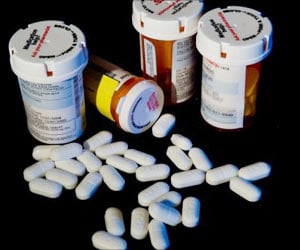The FDA is calling for the development of an app that could quickly bring lifesaving medication to the rescue of a person in the throes of a deadly overdose.

‘Naloxone quickly reverses the effects of an opioid drug overdose by plugging up the receptors in the brain to which opioid narcotics bind themselves.’





The FDA is deliberating over whether and how it can make naloxone available without a prescription. In the meantime, however, the reversal agent is in too few hands to save all who might benefit. That’s where a well-designed mobile app might help. If an opioid drug user is found unresponsive with a weak pulse and shallow breathing, the person first on the scene might turn to a naloxone finder on her cellphone to get a dose quickly.
Associate FDA Commissioner Peter Lurie suggested that in a large apartment building, for instance, a first responder might find a neighbor just down the hall who has a dose of naloxone in the medicine chest. “There’s not a minute to waste,” Lurie said, and an app that could speed the arrival of naloxone could save lives.
Lurie acknowledged there probably are legal issues to be worked out, including laws or legal waivers that would absolve a provider of naloxone of liability in the event his or her rescue does doesn’t work or prompts an adverse reaction. Those might be modeled on “good Samaritan” laws, adopted by many states, which exempt from liability anyone providing cardiopulmonary resuscitation to someone who appears to have had a heart attack.
More difficult might be the challenge of getting drug users to download an app that speeds the arrival of a reversal drug many are loathe to use. Naloxone’s rapid reversal action also brings a drug user’s high to an abrupt end. Even when drug users’ breathing and heartbeat have nearly stopped, they are rarely aware of their peril and rarely grateful for the rescue.
Advertisement
The submissions will be assessed for innovation, usability, functionality and adaptability by a panel of judges from the FDA, the National Institute of Drug Abuse and the Substance Abuse and Mental Health Services Administration. The highest-scoring entrant will receive an award of $40,000. And all entrants may apply for Small Business Innovation Research grants from the National Institute of Drug Abuse after the competition is over.
Advertisement
Source-Medindia














